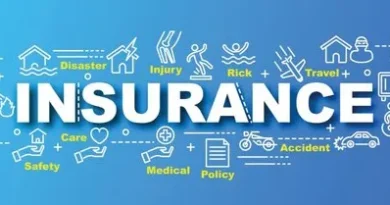Free Accounts Executive Statutory Compliance Course (6Months)

Accounts Executive (Statutory Compliance) :
Brief Job Description:
Accounts Executive (Statutory Compliance) is a person appointed by any company, who is responsible for maintaining records of accounts for the purpose of making statutory payments to the Government on time. He is authorized to perform functions relating to the payment of Govt. dues and filing of respective returns by the applicable due dates.
Personal Attributes:
The individual is required to have excellent understanding of accounting processes with special emphasis on calculation of service tax, TDS, Vat etc., as applicable to the company that needs to be remitted electronically to the Government accounts on time. In addition to having problem solving skills, the individual must be self‐driven and organized with his work and act with integrity when performing multiple tasks for the organization.

Service Tax Compliance:
Understanding relevant terminologies
PC1. Understand in detail tax terminologies such as Input Tax credit, Output tax etc. PC2. Have knowledge of computation of tax liability.
PC3. Understand the amounts/transactions on which taxes are levied.
PC4. Differentiate between the different types/rates of taxes that are applicable to the business transactions.
PC5. Seek information/clarification from any other person/authority in case of uncertain data. PC6. Have awareness towards the changes in tax laws that are applicable to the company for Accounts Executive(Statutory Compliance)
Having access to relevant documents
PC7. Have access to obtain/receive relevant documents as is required for performing the role.
PC8. Understand the relevance of these documents.
PC9. Thoroughly understand the contents of these documents.
PC10. Gather additional documents pertaining to any special requirement.
PC11. Check for authenticity of the documents and report to the concerned authority regarding any deviation.
PC12. Have clear demarcation regarding the documents that relates to the time period for which calculation of tax liability is being undertaken
PC13. Have knowledge of due date for payment of taxes. PC14. Have knowledge of filing of returns on behalf of the company.
Ascertaining Service Tax liability
PC15. Prepare (by referring the documents) a tabular statement detailing the date, particulars and value of transactions that attracts service tax liability.
PC16. Prepare (by referring the documents) a tabular statement detailing the date, particulars and value of transactions on which service tax is already paid (i.e) service tax paid on expenses that are booked during the period.
PC17. Fill-up the tabular statement with precise and relevant information.
PC18. Ascertain from such statement, the tax liability (if any) that needs to be paid to the Government. PC19. Understand in detail, the effects of negative tax liability (i.e) excess tax already paid by the company.
PC20. Carry forward in the books of accounts such excess tax paid and be able to make adjustments while making the next Payment. PC21. Seek approval of such statement from supervisor/Manager with whom such authority rests.
Preparation of Tax Challan
PC22. Thoroughly understand the concepts and terms of tax payment procedures.
PC23. Understand and identify the tax rate applicable to the nature of transactions.
PC24. Have knowledge of electronic payment system.
PC25. Have thorough understanding of government websites through which payment is to be made.
PC26. Seek and receive any log-in id required to perform the role.
PC27. Make use of already existing id (if any) to perform the function.
PC28. Fill-up the payment form electronically with details such as TAN No., Assessment year, type and nature of payment, bank details etc. PC29. Seek and receive approval of payment from senior/Manager.
Payment of service Tax liability
PC30. Have knowledge of electronic payment system.
PC31. Have thorough understanding of government websites through which payment is to be made.
PC32. Seek and receive any log-in id required to perform the role.
PC33. Make use of already existing id (if any) to perform the function.
PC34. Make payment electronically of such amount of tax liability
PC35.Generate tax paid challan as acknowledgement for making the payment.
Performing the accounting entry
PC36. Have knowledge of the accounting software used by the company.
PC37. Seek and receive any log-in id required to operate the software.
PC38. Understand the account types and codes (if used in the software).
PC39. To make use of already existing log-in ID (if required so).
PC40. To update/check for automatic updation regarding any new account.
PC41. Update account codes into the books of accounts.
PC42. Have understanding of the voucher type required to record this transaction.
PC43. Have thorough understanding of the double entry system of accounting.
PC44. Give appropriate effect to the relevant account codes.

Filing and Record keeping
PC45. Have understanding of the government websites where the tax returns are to be filed.
PC46. Have understanding of time period within which such returns are to be filed with the concerned authority.
PC47. Fill-up the tax return form in the prescribed format with relevant transaction details.
PC48. Seek approval/authorization from senior/Manager to submit the same.
PC49. Have access/authorization to submit the form on behalf of the company.
PC50. File the relevant documents in chronological order for seamless retrieval for future reference/audit purpose.
PC51. Segregate the data as required in the current financial year.
Perform General/Administrative Tasks
PC53. Update details of tax receipt/payments into information system/records.
PC54. Prepare and submit periodic reports on the nature of tax payments to senior/ manager.
PC55. Discuss and set work targets with senior/manager if applicable.
PC56. Prepare and present any other report as is required while performing the role in the organization.

Organizational Context
KA1. The products/services the company deals in.
KA2. Different accounting system/procedure/processes that are followed by the company.
KA3. Organizational guidelines for dealing with different types of receipts and payments.
KA4. Company’s policies regarding the mode of receipts. KA5. Processes and methods of collections and payments to different customers/suppliers
Technical Knowledge
KB1. Thorough knowledge of Accounting Principles.
KB2. Basic accounting concepts and techniques for recording transactions.
KB2. Working knowledge regarding due dates for payments to the Government and filing of returns with the concerned authorities.
KB3. Working knowledge of financial concepts such as calculation of interest amount, VAT, Service Tax etc. and knowledge of tax laws and tariffs relevant to the business.
KB4. Have transaction processing knowledge.
KB5. Clear understanding about Invoice and particulars thereof.
KB6. Accounting processes and procedures to record the details of invoice. KB7. The differentiation between invoice and other supported documents (like
Purchase Order, delivery challan etc.).
KB8. Procedures for digitally updating customer’s details.
KB9. IT skills and operating procedures of computers and other electronic devices. KB10. Preparation of collection schedule, if required. KB11. Use of computers and have working knowledge of MS Excel, MS Word etc.
Core Skills/ Generic Skills
Writing Skills
SA1. Prepare reports and summary of the receipts/payments for review.
SA2. Prepare reports on status of other receipts accounts.
SA3. Communicate and share knowledge with peers and supervisors.
Reading Skills
. Read and understand organizational and regulatory guidelines.
SA5. Read and verify legitimacy of documents submitted by concerned person.
SA6. Read and explain terms to the other party.
Integrity
SA7. Maintain integrity with respect to sensitive documents
SA8. Act objectively and in the best interests of customers
Mathematical Skills
The user/individual on the job needs to know and understand how to:
SA9. Compute numbers quickly and accurately.
SA10. Perform basic mathematical operations such as addition, subtraction, multiplication and division
SA11. Calculate accurately any tax to be charged, discount allowed etc., w.r.t. the customer’s account as per the company policy Oral
Communication (Listening and Speaking skills)
The user/individual on the job needs to know and understand how to:
SA1. Listen to the customers and be able to offer products that are pertinent to their requirements.
SA2. Communicate clearly with the customer using language that he/she understands.
SA3. Communicate and share knowledge with peers and supervisors.

Professional Skills
Decision Making
The user/individual on the job needs to know and understand how to:
SB1. Differentiate between the critical documents and its relevance in accounting.
SB2. Make clear, logical decisions regarding the upkeep of documents.
Plan and Organize
The user/individual on the job needs to know and understand how to:
SB3. Plan the work/tasks at hand.
SB4. Organize work & time in order to maximize productivity..
Problem Solving
The user/individual on the job needs to know and understand how to:
SB5. Address problems arising either due to a technical issue, customer grievance or administration related issues and escalate those issues beyond one’s role.
Motivation and Critical Thinking
The user/individual on the job needs to know and understand how to:
SB6. Be self driven, take initiatives and deliver results set by the organization and respective seniors
SB7. Consistently obtain feedback and improve their performance.
SB8. Exercise judgment in unforeseen situations which preserve company values and are in line with organizational guidelines.
Attention to detail
The user/individual on the job needs to know and understand how to:
SB9. Check whether the work is complete and free from errors.
SB10. Get the work checked by others.
Team work
The user/individual on the job needs to know and understand how to:
SB11. Contribute to the quality of team working.
SB12. Work effectively in a team environment.
Technical Skills
Technical Skills
The user/individual on the job needs to know and understand how to:
SC1. Use information technology effectively to input and/or extract data accurately.
SC2. Identify and refer anomalies in the data.
SC3. Store and retrieve information.
SC4. Keep updated with changes, procedures and practices in the role.
SC5. Use software packages and tools specific to the field of expertise.
Tax Deducted at Source (TDS) Compliance:
Understanding relevant terminologies
PC1. Understand in detail tax terminologies such as TDS, Tax Collected at Source
(TCS) and rates of TDS etc.
PC2. Have knowledge of computation of tax liability.
PC3. Understand and identify the transactions that attract TDS.
PC4. Understand and identify the transaction value beyond which TDS rules are
applicable.
PC5. Identify the transactions on which TDS rules are to be applied.
PC6. Understand thoroughly different rates of taxes applicable to different business
transactions.
PC7. Seek information/clarification from any other person/authority in case of
uncertain data.
PC8. Have awareness towards the changes in tax laws that are applicable to the
company.
Having access to relevant documents
PC9. Have access to obtain/receive relevant documents as is required for
performing the role.
PC10. Understand the relevance of these documents.
PC11. Thoroughly understand the contents of these documents.
PC12. Gather additional documents pertaining to any special requirement.
PC13. Check for authenticity of the documents and report to the concerned
authority regarding any deviation.
PC14. Have clear demarcation regarding the documents that relates to the time
period for which calculation of tax liability is being undertaken
PC15. Have knowledge of due date for payment of taxes.
PC16. Have knowledge of filing of returns on behalf of the company.
Ascertaining amount of TDS payable
PC17. Prepare (by referring to documents) a tabular statement detailing the date,
particulars and value of transactions that attracts TDS.
PC18. Clearly mention for each transaction, the section of law under which these
deductions have been done.
PC19. Prepare tabular statement covering transactions for each such section.
PC20. Refer the updated TDS rate chart applicable to the transactions.
PC21. Fill-up the tabular statement with precise and relevant information.
PC22. Ascertain from such statement, the tax liability that needs to be paid to the Government.
PC23. Seek approval of such statement from supervisor/Manager with whom such
authority rests.
Preparation of Tax Challan
PC24. Thoroughly understand the concepts and terms of tax payment procedures.
PC25. Understand and identify the tax rate applicable to the nature of transactions.
PC26. Have knowledge of electronic payment system.
PC27. Have thorough understanding of government websites through which
payment is to be made.
PC28. Seek and receive any log-in id required to perform the role.
PC29. Make use of already existing id (if any), to perform the function.
PC30. Fill-up the payment form electronically with details such as TAN No.,
Assessment year, type and nature of payment, bank details etc.
PC31. Seek and receive approval of payment from senior/Manager.
Payment of TDS
PC32. Have knowledge of electronic payment system.
PC33. Have thorough understanding of government websites through which
payment is to be made.
PC34. Seek and receive any log-in id required to perform the role.
PC35. Make use of already existing id (if any), to perform the function.
PC36. Make payment electronically of such amount of tax liability
PC37.Generate tax paid challan as acknowledgement for making the payment.
PC38. Have awareness of the due date within which such TDS has to be deposited to
the Government Account.
PC39. Ensure the payment is made within the due date, but for exceptional cases.
PC40. Calculate any interest for late payment for such exceptional cases.
Performing the accounting entry
PC41. Have knowledge of the accounting software used by the company.
PC42. Seek and receive any log-in id required to operate the software.
PC43. Understand the account types and codes (if used in the software).
PC44. To make use of already existing log-in ID (if required so).
PC45. To update/check for automatic updation regarding any new account.
PC46. Update account codes into the books of accounts.
PC47. Have understanding of the voucher type required to record this transaction.
PC48. Have thorough understanding of the double entry system of accounting.
PC49. Give appropriate effect to the relevant account codes.
Filing and Record keeping
PC50. Have understanding of the government websites where the tax returns are to
be filed.
PC51. Have understanding of time period within which such returns are to be filed
with the concerned authority.
PC52. Fill-up the tax return form in the prescribed format with relevant transaction
details.
PC53. Seek approval/authorization from senior/Manager to submit the same.
PC54. Have access/authorization to submit the form on behalf of the company.
PC55. File the relevant documents in chronological order for seamless retrieval for future reference/audit purpose.
PC56. Segregate the data as required in the current financial year.
PC57. Prepare and present quarterly, half-yearly reports as per requirements
Perform General/Administrative Tasks
PC58. Update details of tax receipt/payments into information system/records.
PC59. Prepare and submit periodic reports on the nature of tax payments to senior/
manager.
PC60. Discuss and set work targets with senior/manager if applicable.
PC61. Prepare and present any other report as is required while performing the role
in the organization.
Organizational Context
KA1. The products/services the company deals in.
KA2. Different accounting system/procedure/processes that are followed by the company.
KA3. Organizational guidelines for dealing with different types of receipts and payments.
KA4. Company’s policies regarding the mode of receipts.
KA5. Processes and methods of collections and payments to different customers/suppliers.
Technical Knowledge
The user/individual on the job needs to know and understand:
KB1. Thorough knowledge of Accounting Principles.
KB2. Basic accounting concepts and techniques for recording transactions.
KB2. Working knowledge regarding due dates for payments to the Government and filing of returns with the concerned authorities.
KB3. Working knowledge of financial concepts such as calculation of interest amount, TDS etc. and knowledge of tax laws and tariffs relevant to the business.
KB4. Have transaction processing knowledge
. KB5. Clear understanding about Invoice and particulars thereof.
KB6. Accounting processes and procedures to record the details of invoice.
KB7. The differentiation between invoice and other supported documents (like Purchase Order, delivery challan etc.). KB8. Procedures for digitally updating customer’s details.
KB9. IT skills and operating procedures of computers and other electronic devices.
KB10. Preparation of collection schedule, if required.
KB11. Use of computers and have working knowledge of MS Excel, MS Word etc.
Core Skills/ Generic Skills
Writing Skills
The user/ individual on the job needs to know and understand how to:
SA1. Prepare reports and summary of the receipts for review.
SA2. Prepare reports on status of other receipts accounts.
SA3. Communicate and share knowledge with peers and supervisors.
Reading Skills
SA4. Read and understand organizational and regulatory guidelines
SA5. Read and verify legitimacy of documents submitted by the concerned person
SA6. Read and explain terms of receipts to the other party.
Integrity
The user/individual on the job needs to know and understand how to:
SA7. Maintain integrity with respect to sensitive documents.
SA8. Act objectively and in the best interests of the company.
Mathematical Skills
The user/individual on the job needs to know and understand how to:
SA9. Compute numbers quickly and accurately.
SA10. Perform basic mathematical operations such as addition, subtraction, multiplication and division.
SA11. Calculate accurately any tax to be charged, discount allowed etc., w.r.t. the customer’s account as per the company policy.
Professional Skills
Decision Making
The user/individual on the job needs to know and understand how to:
SB1. Differentiate between the critical documents and its relevance in accounting.
SB2. Make clear, logical decisions regarding the upkeep of documents.
Plan and Organize
The user/individual on the job needs to know and understand how to:
SB3. Plan the work/tasks at hand.
SB4. Organize work & time in order to maximize productivity.
Problem Solving
The user/individual on the job needs to know and understand how to:
SB5. Address problems arising either due to a technical issue, customer grievance or administration related issues and escalate those issues beyond one’s role.

Motivation and Critical Thinking
The user/individual on the job needs to know and understand how to:
SB6. Be self driven, take initiatives and deliver results set by the organization and respective superiors
SB7. Consistently obtain feedback and improve their performance
SB8. Exercise judgment in unforeseen situations which preserve company values and are in line with organizational guidelines.
Attention to detail
The user/individual on the job needs to know and understand how to:
SB9. Check whether the work is complete and free from errors.
SB10. Get the work checked by others
Team work
The user/individual on the job needs to know and understand how to:
SB11. Contribute to the quality of team working.
SB12. Work effectively in a team environment
Technical Skills
The user/individual on the job needs to know and understand how to:
SC1. Use information technology effectively to input and/or extract data accurately.
SC2. Identify and refer anomalies in the data.
SC3. Store and retrieve information.
SC4. Keep updated with changes, procedures and practices in the role.
SC5. Use software packages and tools specific to the field of expertise
Guidelines for Assessment:
- Criteria for assessment for each Qualification Pack will be created by the Sector Skill Council. Each Performance Criteria (PC) will be assigned marks proportional to its importance in NOS. SSC will also lay down proportion of marks for Theory and Skills Practical for each PC.
- The assessment for the theory part will be based on knowledge bank of questions created by the SSC.
- Assessment will be conducted for all compulsory NOS, and where applicable, on the selected elective/option NOS/set of NOS.
- Individual assessment agencies will create unique question papers for theory part for each candidate at each examination/training center (as per assessment criteria below).
- Individual assessment agencies will create unique evaluations for skill practical for every student at each examination/training center based on this criterion.
- To pass the Qualification Pack , every trainee should score a minimum of 70% of aggregate marks to successfully clear the assessment.
- In case of unsuccessful completion, the trainee may seek reassessment on the Qualification Pack.







